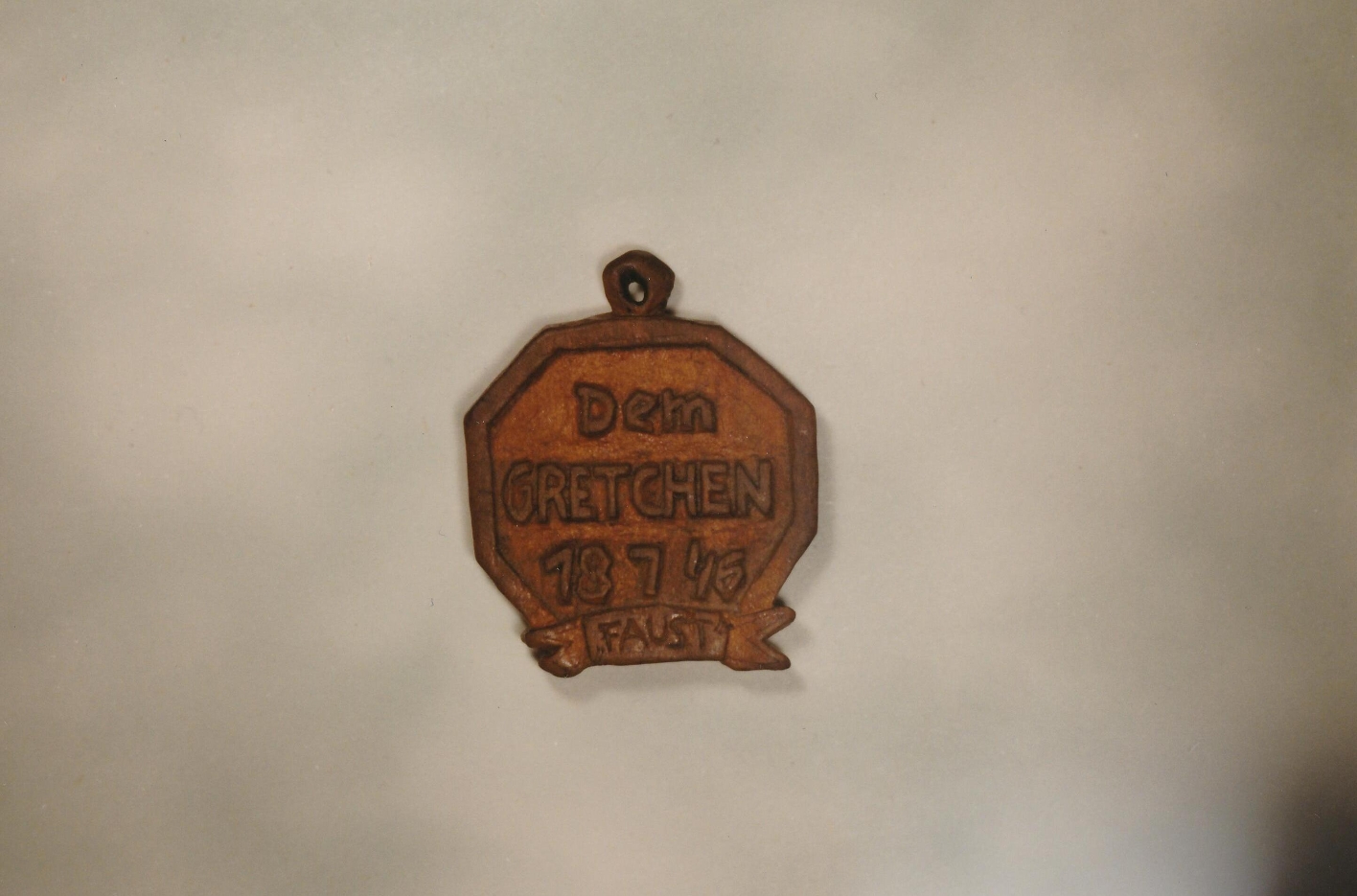
1/2
Wooden pendant from an in-house production of Goethe's Faust from 1946.
©Buchenwald Memorial

2/2
Back of a wooden pendant from a camp-internal production of Goethe's Faust from 1946.
©Buchenwald Memorial
Cultural pastimes were an important survival strategy for inmates, as a way of escaping isolation and forced inactivity. Inmates organized specialized lectures, concerts, choral works, and theatre performances. Beginning in 1947, the Soviet camp leadership forbade all cultural activity—an exceptional rule within the Soviet special camp system. According to personal memories, this change in policy is often associated with the flight of five inmates in December 1949. In 1949, inmates were allowed to attend worship services at Easter and Christmas in the Kultura.

